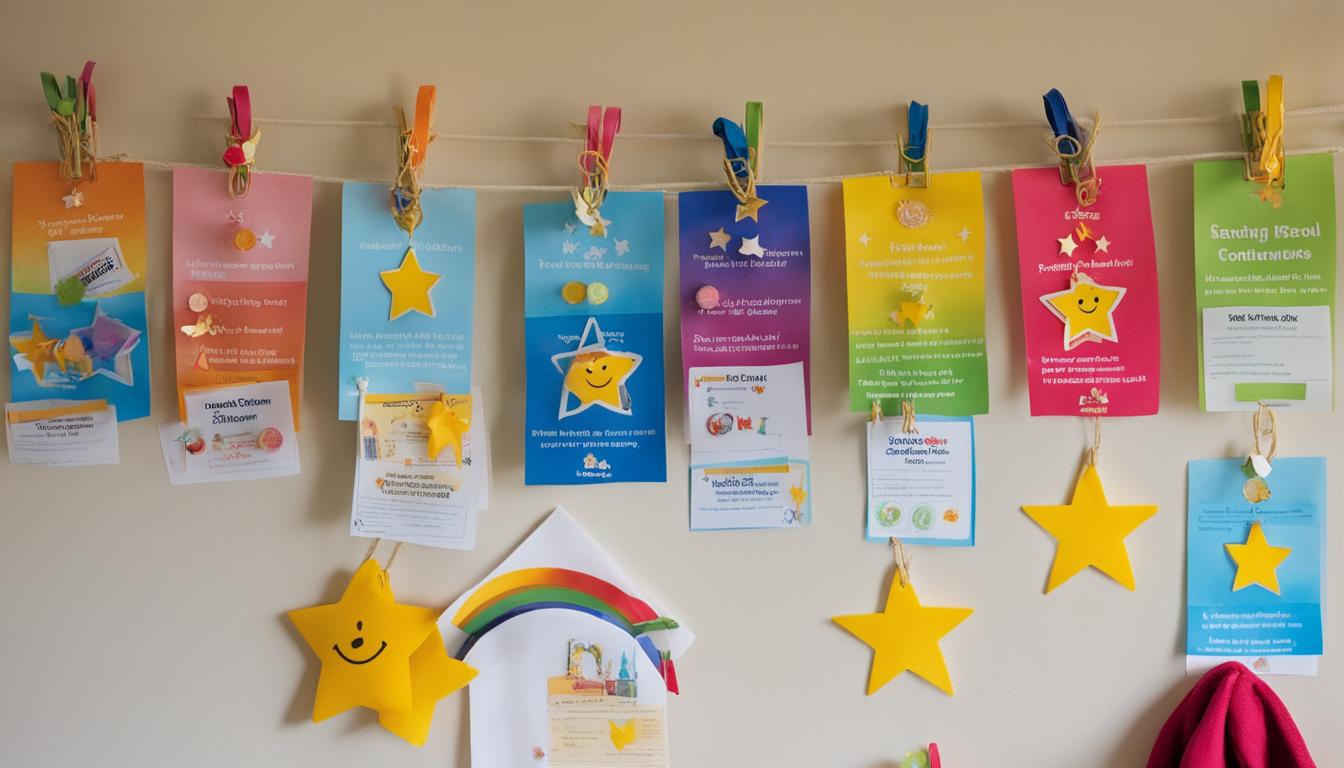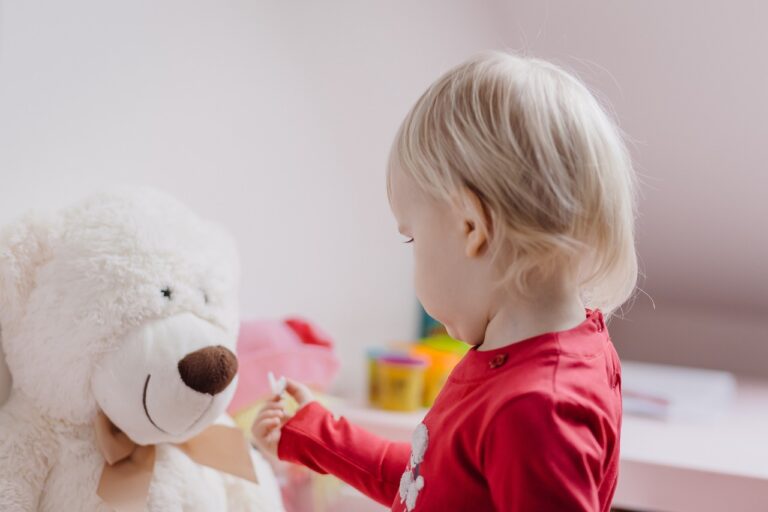Mastering How to Use Praise Effectively in Child Discipline
As a seasoned parent and educator, I’ve come to recognize that the secret to mastering child discipline strategies lies not in a one-size-fits-all solution but in mastering the dynamic art of positive reinforcement in child discipline. Embracing the wisdom of ancient philosophers and modern psychologists alike, I’ve seen firsthand how effective praise can catalyze growth in young lives, shaping both behavior and character. The challenge of parenting demands not just strategies, but a symphony of parenting techniques that resonate with the needs and strengths of every unique child.
A pivotal note in this symphony is learning how to use praise effectively in child discipline. Through weaving together actionable strategies with warmth and insight, caregivers can build positive parent-child relationships, vital for the tapestry of a child’s actualization. It’s about crafting an environment where praise and child development converge, strengthening the foundations for well-rounded individuals who are secure in themselves and in their connections with others.
Join me as we delve into the nuances of employing praise as a tool for nurturance and guidance, where the ripples of our words can leave impressions far deeper than the immediate act of discipline.
Key Takeaways
- Positioning praise as a cornerstone of child discipline strategies enhances behavioral growth.
- Effective praise goes beyond superficial compliments, contributing to valuable life lessons in self-regulation and resilience.
- Positive reinforcement in child discipline, used judiciously, nurtures intrinsic motivation and encourages self-improvement.
- Parenting techniques that incorporate consistent and sincere praise forge stronger, positive parent-child relationships.
- Focused on praise and child development, parents can empower their children to internalize positive behaviors and values.
- Building positive parent-child relationships is an investment in a child’s present well-being and future potential.
The Importance of Praise in a Child’s Behavioral Development
As I reflect upon my experiences as a parent, I recognize the enormous importance of praise in discipline. It’s something more than a mere encouragement; praise is a vital tool that nurtures the tender garden of a child’s growing personality and moral compass. Understanding its power and how to utilize it can transform the way we approach child discipline.
The role of praise in effective child discipline is multifaceted, extending beyond simple acknowledgment. It strengthens the fabric of trust and open communication. When I diligently listen and provide authentic feedback to my child’s achievements and efforts, it opens doors to invaluable teaching moments that shape their character and enhance their growth.
Yet, its impact spans deeper, significantly influencing praise and behavioral development. By offering praise, I’m not just applauding an action but endorsing a pattern of thinking and behavior. It motivates my child to persevere, reaffirming their capabilities to not only replicate admirable behaviors but also to build upon them.
Praise should be like a verbal sunbeam straight to the heart, not a transient applause but a nurturing warmth that fosters growth and joy.
- Highlight the positive actions that reflect a child’s effort and dedication.
- Use praise to underscore the values behind their behavior.
- Strike a balance between praising the effort and the outcome for a rounded sense of accomplishment.
I’ve found that effectively using praise to reinforce positive behavior in child discipline is not a sporadic gesture but a consistent and intentional strategy. We as parents must be deliberate in our praises, ensuring that they are rooted in genuineness and provide a true reflection of our children’s progress and morals.
In the grand theater of parenting, where every act turns the page of a child’s life story, the strategic use of praise stands like a steady pillar. It’s a force that drives motivation and self-improvement. At every opportunity where my child steps up to the plate of responsibility and initiative, my acknowledgment thereof consolidates their sense of self-worth and encourages further strides in the same direction.
What we must remember is that developing a young life is an art, and every word of praise is a stroke of the brush on the canvas of their future. So wield this tool with care, infuse it with love, and watch as the young seedling of today’s child grows into the formidable tree of tomorrow’s adult.
- Offer descriptive praise, focusing on specific behaviors.
- Be quick to acknowledge growth, no matter how small.
- Ensure that praise is fitting and proportionate to the child’s action.

Key Strategies for Using Praise as Positive Reinforcement
Throughout my years of nurturing young minds and spirits, I’ve witnessed the profound impact that well-crafted praise strategies for successful child discipline can have. Using positive reinforcement strategies can truly sculpt a child’s growth and make the difference between good behavior being a one-time occurrence or a lifelong habit. Let’s explore the keystones of effective praise that empower and shape disciplined behavior.
Praise that Empowers: Complimenting Effort Over Ability
I’ve learned that complimenting effort over ability lays the groundwork for children to embrace challenges and persevere. Stanford University’s Carol Dweck’s research taught me the power of the growth mindset, which emphasizes the importance of effort. An “A” for effort is more than just an old saying—it’s a practice grounded in nurturing self-efficacy and resilience.
- Acknowledge the Process: Whether it’s a small assignment completed or their first attempt at a complex puzzle, it’s crucial to recognize the dedication a child shows.
- Praise with Precision: Instead of a generic “good job,” be specific—praise the strategic approach or the persistence they displayed.
- Encourage Resilience: When a task is struggled with or failed, highlight the learning gained and the courage it took to attempt it.
How to Deliver Praise: Timing, Consistency, and Sincerity
In delivering effective praise techniques for child discipline, timing is as crucial as the heartfelt sentiment behind it. Delivering praise immediately following a positive action solidifies the connection in a child’s mind between their behavior and positive acknowledgment. Consistency in praise—a regular, expected response to good behavior—establishes a reliable pattern, while sincerity strengthens genuine progress and instills real pride.
- Praise Promptly: Reinforce positive behavior with immediate praise to establish a positive connection.
- Consistencey Matters: Apply praise regularly to build a structure that children can anticipate and strive to sustain.
- Be Authentic: Let your genuine admiration for their achievements shine through to validate their efforts sincerely.
Creative Ways to Integrate Praise into Everyday Parenting
Creativity in praise infuses daily routines with encouragements that resonate with a child’s individuality. I strive to go beyond words to express admiration for their accomplishments. Creative praise integration encompasses recognition charts to track progress, special responsibilities that acknowledge a child’s maturing capabilities, and affectionate gestures that celebrate small victories.
- Showcase Achievements: A displayed artwork or a story shared with family can magnify the sense of achievement.
- Task Ownership: Assigning specific chores can dignify efforts in a tangible way, giving children a sense of valued contribution.
- Customized Rewards: Aligning rewards with a child’s interests validates their unique self and honors their preferences.
At the heart of everyday parenting with praise lies the commitment to cultivating a supportive atmosphere where children feel empowered to explore, experiment, and evolve. By embedding praise into our everyday interactions, we guide our children towards the fulfillment of their potential and the internalization of discipline.

Avoiding Common Pitfalls When Disciplining with Praise
As an advocate for constructive discipline techniques, I understand the delicate balance required in parenting. It’s important to navigate the complexities of avoiding pitfalls in child discipline, particularly when integrating praise into our discipline strategies. Missteps can happen, but with attention to detail and understanding, they can be avoided or corrected effectively.
A significant challenge I’ve encountered is the temptation to offer excessive praise. It’s an easy trap to fall into, especially when we see the positive impact that our words can have. However, in an effort to uplift, we must be cautious not to inflate or set unrealistic standards. Genuine accomplishment should be the basis of our commendations, as this encourages children to develop a realistic self-assessment of their abilities and efforts.
- Measured Approaches: Aim to provide praise that is proportionate to the accomplishment to foster a sensible perception of success.
- Authentic Recognition: Be mindful that your praise is a true reflection of genuine achievement, not a hollow platitude.
Another pitfall to be mindful of is insincerity. Children, though young, are astute observers of the genuineness behind our words. Discipline challenges with praise often arise when children perceive commendation as a mere tool for behavioral control rather than heartfelt recognition of their efforts.
True praise, like sunlight, filters into a child’s growth, fostering development and blooming self-esteem when delivered with sincerity.
Then there’s the concern of relying too heavily on praise, which might prevent children from developing the necessary resilience to face and learn from failures. While our intent in using praise is to promote positive behavior and confidence, it must never replace a child’s intrinsic ability to endure and grow from life’s challenges.
- Encourage the Learning in Failure: Use setbacks as opportunities for teaching resilience and problem-solving.
- Pair Praise with Accountability: Ensure that alongside praise, there are clear expectations and consequences for actions.
The way I see it, avoiding pitfalls in child discipline through praise requires a judicious approach. To effectively guide my child’s behavior, I must balance positive reinforcement with thoughtful and clear boundaries. This fosters autonomy and instills an understanding of accountability in my child, all while reinforcing their capability for personal growth without an overreliance on external validation.
- Apply Praise Judiciously: Reserve praise for noteworthy achievements, and guide behaviors thoughtfully.
- Set Clear Boundaries: Make sure that even with praise, clear guidelines and consequences are understood.
In conclusion, navigating the discipline terrain with praise means to tread thoughtfully, with awareness and a nurturing heart. As we continue to shape the young minds entrusted to our care, let’s use praise not as a blanket solution but as one of many vital tools in our parenting arsenal.
Cultivating a Positive Parent-Child Relationship Through Effective Praise Techniques
In the intricate dance of parenting, utilizing effective praise is an art form that strengthens the bond between parent and child. Embracing positive parenting techniques centered around encouragement has opened my eyes to the profound impact of nurturing these connections. As I endeavor to cultivate positive relationships with my children, I’ve found that the subtle nuances in how we praise are just as crucial as the act itself. This approach not only fosters a loving environment but also respects the individuality and burgeoning autonomy of every child.
My parenting journey has shown me the significance of parenting with effective praise, leading to mutual admiration and understanding. By spotlighting their achievements and positive behavior, I’m not just shaping actions but advocating character traits and values that will endure for a lifetime. I’ve learned to accentuate the positive aspects of their growth with an empathetic language, fostering self-discipline and confidence. This approach provides a framework where trust flourishes, and open communication paves the way for a robust parent-child dynamic. Authentic feedback, issued with care and sincerity, is the cornerstone of fostering self-worth and a vibrant, confident mindset ready to confront life’s challenges.
Each day spent in these nurturing exchanges melds my commitment to my children’s personal and moral development. Whether it’s acknowledging their persistence in learning a new skill or celebrating their thoughtful actions, effective praise has become a key facet of my parenting technique. It is with intention and the heartfelt aim to raise self-reliant, empathetic, and conscious individuals that I advocate for strategies that embolden children and solidify the precious connection we share. In this light, modeling positive reinforcement educates and uplifts, creating an ambiance wherein virtues, talents, and personalities aren’t merely acknowledged—they thrive.
FAQ
What role does praise play in effective child discipline?
Praise is pivotal in child discipline as it serves to reinforce positive behaviors and contribute to a child’s behavioral development. When used effectively, praise bolsters self-esteem, motivates children to repeat desirable behaviors, and fosters a positive parent-child relationship.
How can I use praise effectively in disciplining my child?
To use praise effectively, focus on reinforcing specific positive behaviors immediately after they occur, ensuring your praise is sincere and consistent. Emphasize the effort and hard work your child puts into their actions, rather than only praising the outcome.
Why is it important to compliment effort over ability when praising my child?
Complimenting effort over ability encourages a growth mindset, making children more likely to persevere through challenges. It helps them understand that their actions and dedication lead to success, fostering a sense of control and enhancing self-efficacy.
What are some creative ways to integrate praise into everyday parenting?
Praise can be integrated into everyday parenting by using descriptive praise that pinpoints exactly what the child did well, setting up recognition charts, offering affectionate gestures, or giving special responsibilities that align with the child’s interests and strengths.
What common pitfalls should I avoid when disciplining my child with praise?
When using praise as a discipline tool, avoid offering excessive or hollow praise, which can undermine its effectiveness or create unrealistic expectations. Ensure that praise is balanced with clear boundaries and consequences, so it does not become the sole focus of your parenting approach.
How does effective praise contribute to a positive parent-child relationship?
Effective praise contributes to a positive relationship by building a foundation of mutual respect, enhancing communication, and making children feel valued and understood. It increases their confidence and willingness to cooperate, creating a supportive and empathetic dynamic based on trust and shared positive experiences.
Can using praise to reinforce positive behavior in child discipline also teach accountability?
Yes, using praise to reinforce positive behavior can help teach accountability by ensuring that positive reinforcements are coupled with clear expectations and consequences for actions. This balanced approach helps children learn the value of their behaviors and the responsibilities that come with them.
What is the importance of timing when delivering praise to my child?
The timing of praise is important because immediate reinforcement helps children make a clear association between their specific behavior and the positive acknowledgment, thus increasing the likelihood that the behavior will be repeated in the future.
How can consistency in praising my child shape their behavior?
Consistency in praise establishes predictable patterns that children can understand and rely on. This consistent acknowledgment of desired behaviors sets clear standards, helping children to internalize them and form lasting, positive habits.
Why should sincerity be a priority when offering reinforcements?
Sincerity is crucial when offering praise because children are adept at detecting insincerity. Genuine praise is more meaningful and impactful, leading to a greater influence on a child’s self-worth and reinforcing the behaviors you want to encourage.










